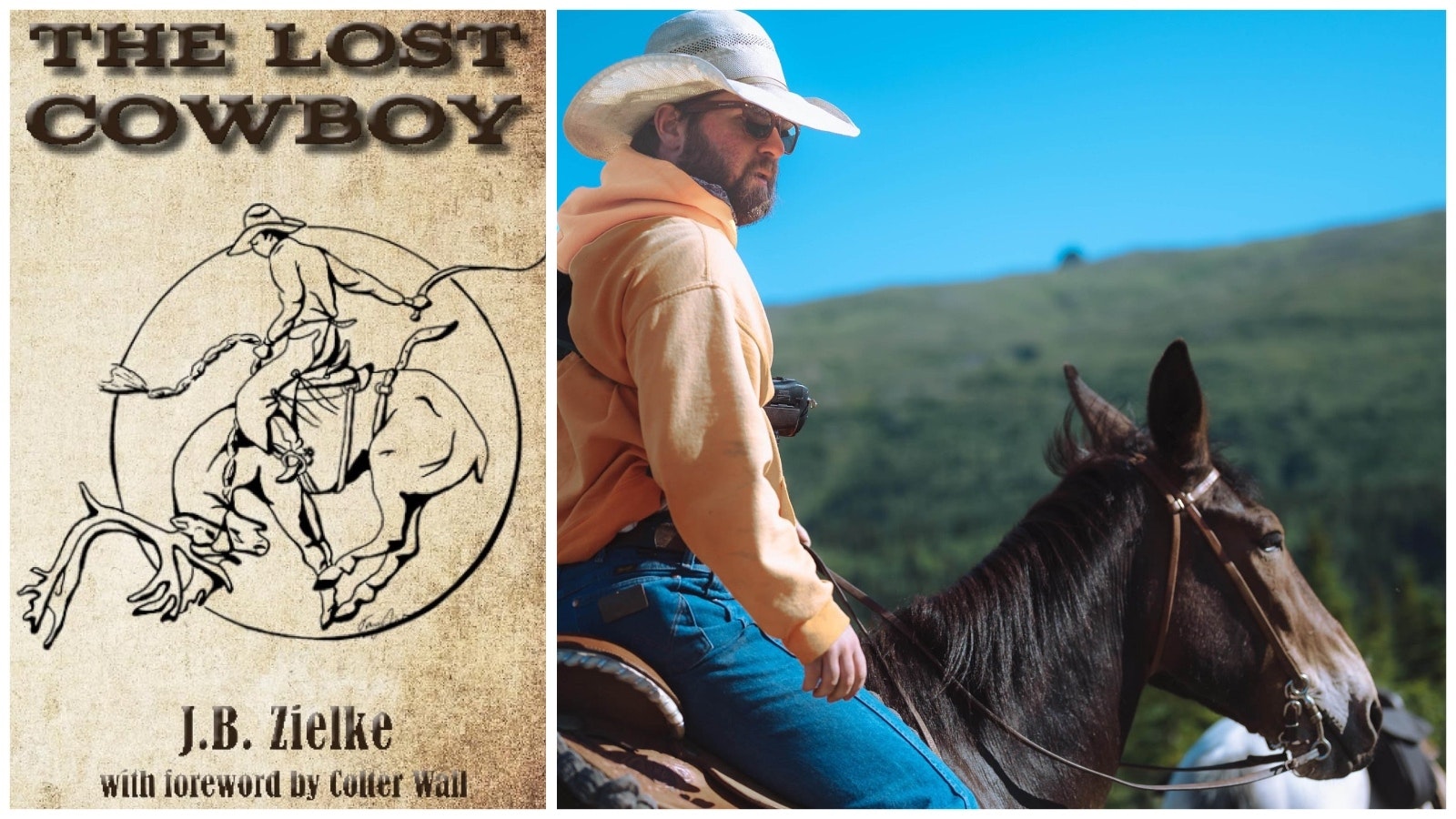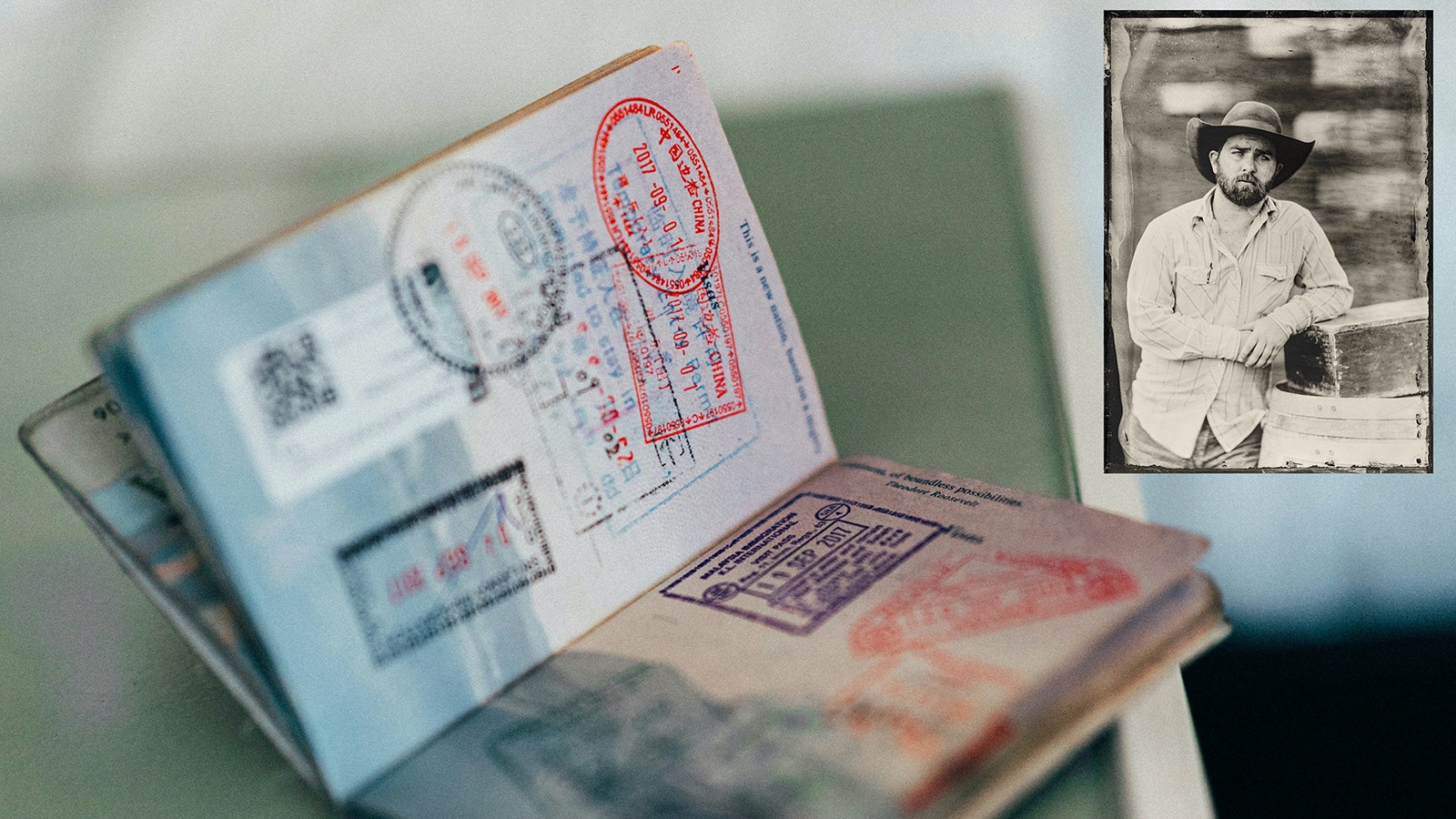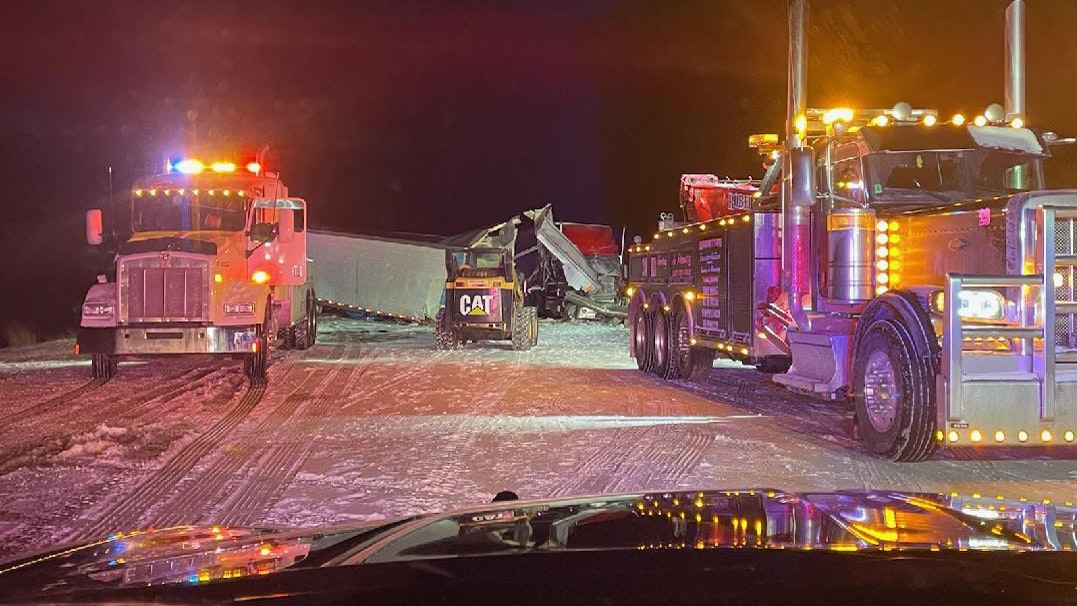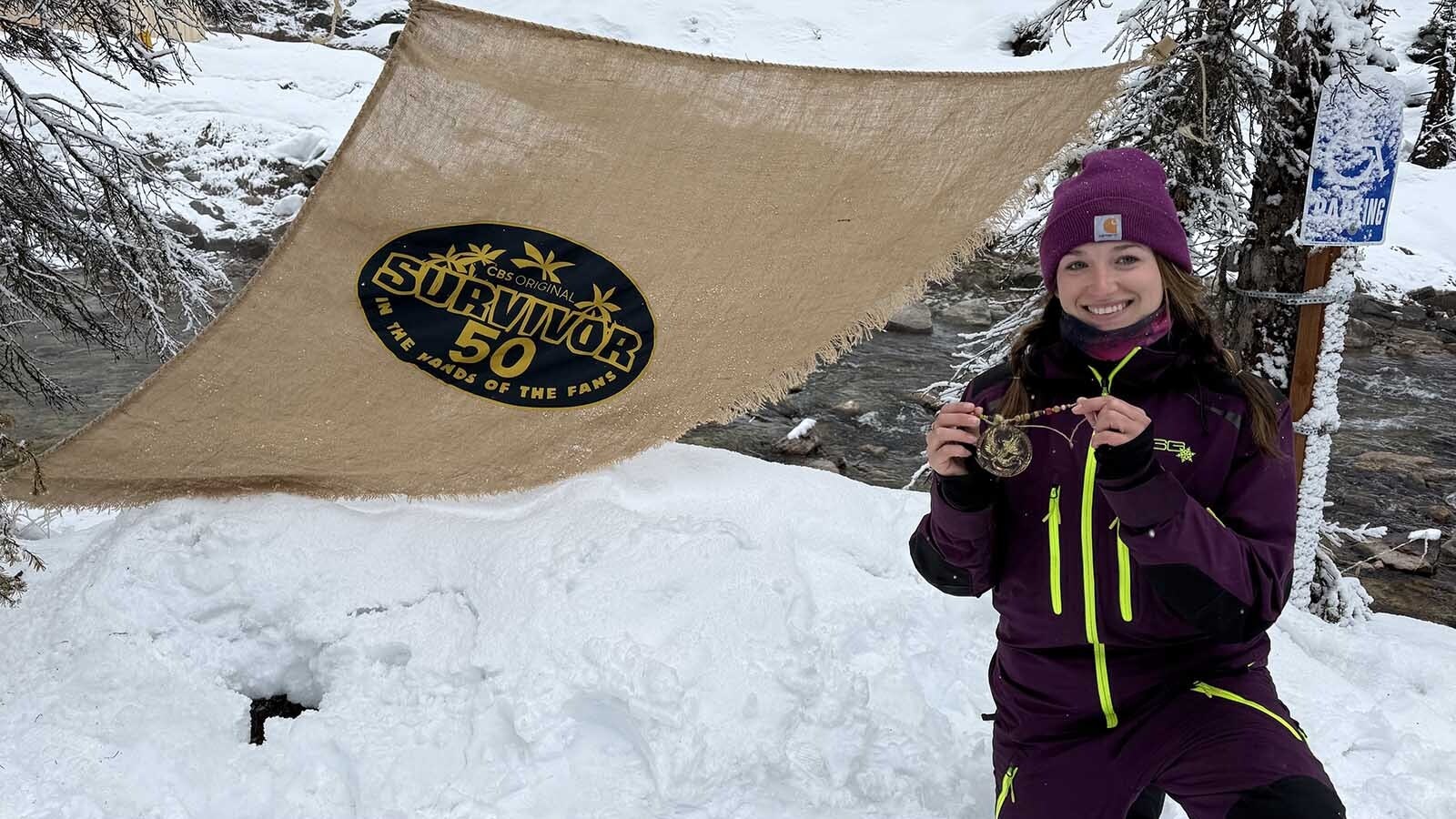Curiosity, if it doesn’t kill the cowboy, leads him to a world of wonder.
That’s what Saratoga’s J.B. Zielke found working as a cowboy in all six of the continents where cowboys are found. The only continent he hasn’t worked in Antarctica. There aren’t any animals to speak of there — maybe an occasional seal or penguin, and a few plants.
On the other hand, who knows? With a degree in veterinary science, maybe an Antarctic science team could use a cowboy on the largely unoccupied continent.
Still, even without that, Zielke can boast of riding reindeer in Mongolia, dirtbike “horses” in Australia and wild runaway broncs in South Africa, the latter of which definitely didn’t understand the meaning of “whoa.”
His adventures, some of them quite deadly, began in Australia.
“I’d seen some videos of guys catching wild bulls there, and I thought that would be really fun to do,” he told Cowboy State Daily. “And there was a gal who was doing the study abroad program at the University of Wyoming, and she was from Australia.”
Zielke had a few classes with her, so one day he got up the nerve to ask, half seriously, if she could hook him up.
She gave him a “You Americans” look and told him she wasn’t sticking her neck out for some cowboy who wasn’t likely to follow through.
Zielke didn’t give up. It’s just not in his nature to quit. And, eventually, he convinced her to give him her brother’s email.
Her brother was running a mustering crew, cleaning up wild cattle for an Aboriginal community on 6 million acres in the Australian Outback. As “down under” as it gets.
“These lands had been given back to the Aborigines probably 50 or 60 years ago, but, before that, it was a functioning, profitable cattle station,” Zielke said. “When the Aborigines got it back, though, they had no desire to use the land as a ranch.”
Wildest Bulls In The World
Over time, all the fences fell down, and the cattle reverted back to their wildest nature. Their descendants became the wildest, orneriest bulls in the world. They don’t think twice about head-butting an armored four-wheel drive vehicle mucking about in their territory, and they’re not afraid to gut a careless cowboy either.
“These bulls were so big and mean, they would probably kill your horse if you tried to go out there and catch them that way,” Zielke said. “Horses were just used for kind of rounding up the wild cows and calves. When it came to bulls, we did that with machines.”
The machines were dirtbikes and armored four-wheelers or land cruisers, and the bull-capturing methods look like something dreamed up for a Mad Max movie.
One dirtbiker rides up behind a bull, grabbing its tail. He then yanks it, while spinning away from the bulls horns, tipping it over. Yep, that’s right, cow-tipping really is a thing — if you’re in Australia.
Seconds later, the two dirtbike riders who were following just behind, dump their dirtbikes without even turning them off, leaving the wheels to spin air. They are on top of the bull before it knows what’s happened, tying his feet with rope faster than he can kick them away.
That doesn’t mean the cowboys always won.
“It was like a daily thing that somebody would get pretty badly hurt on our crew,” Zielke said. “And it was dang near every day that you were, it seemed, inches from death, whether it be from bull horns or chopper crashes.”
The “choppers” were used to scout for bulls across the 6 million acres of pasture lands where the wild bulls roamed. They would sometimes find a large group of as many as 40 to 50 at once. More often, they would spend an entire day rounding up 10 or so wild bulls.
The wild bulls weren’t the only dangers out in the Australian Outback. There were also crocodiles in the water, which Zielke had seen snap up a yearling and drag it under in the blink of an eye.
“They’d pull them in and for about 30 seconds there would be a bunch of swirling water and blood,” Zielke said in a podcast interview with Rodeo Time. “Then it’s just calm. Like nothing ever happened.”
Venomous snakes that could kill a man with one bite — and who didn’t bother to “buzz” to announce their presence like rattlers in North America — were also quite common in the Outback.
Despite that, Zielke didn’t wear cowboy boots or even shoes for that matter, much less long pants or long sleeves that might have protected him from snake bite.
“It was probably 100 degrees every day, and dry and dusty,” Zielke said. “So, we wore as little clothes as possible, trying to stay cool.”
At night, Zielke slept on a bedroll propped up on two gas cans, under the open air. And that’s where the green ants got him. He woke up one night covered in painful bites.
“I had been warned about them, but I guess I didn’t know about them or how they behaved,” he said. “I was just told never to hit one of their nests.”
Back to Wyoming
After four months of the adventure of his young lifetime, Zielke returned home to America, to finish his education at University of Wyoming, where he was studying to become a veterinarian.
He had had no intention of traveling any more. One adventure of a lifetime was enough for him.
But then, right as he was graduating, someone who had a masters in veterinary science told him that he was having a hard time finding a job.
“People didn’t really care about his master’s degree,” Zielke said. “What they cared about was if you were bilingual or not.”
That scared Zielke almost as much as green ants and venomous snakes. Not only did he not have a masters in veterinary science degree, but he’d never taken a Spanish class in his life, or any other language for that matter.
So, he started looking for cowboy jobs in Spanish-speaking countries because he figured he could pick up the language more easily that way than in a classroom.
Plus he could have another world-class adventure to add to his passport.
“Mexico seemed too dangerous at that time,” Zielke said. “And in Brazil, they only spoke Portuguese down there. So, the next logical place to go was Argentina.”
Argentina was a study in contrasts. There were plenty of modern things in the cities, but an hour away, there were also people living in one-room shacks who couldn’t read or write and didn’t own a car.
“Some didn’t even own a bicycle,” Zielke said. “But they all owned a horse. So, they’d ride their horses to the grocery store.”
Zielke said if he was going to live somewhere besides Wyoming, Argentina would probably be it — though he admits to enjoying Mongolia the most.
“There’s been one point (when) Mongolia, or Genghis Khan specifically, had conquered two-thirds of the known world, and that was done almost entirely by horseback,” Zielke said. “And that’s reflected in their culture today.”
A Life Crisis
After Argentina, Zielke returned home again, with plans to work at building up his own livestock business. There was a big crash, though, and Zielke lost his operation in the ensuing meltdown.
In that same timeframe, as Zielke was trying to figure out what to do next, his brother mentioned that he’d already been to three of the six continents where it’s possible to work as a cowboy. Zielke realized since he was flat broke now, he might as well go for broke and work in all six.
A friend from Sweden had visited his operation and once offered to show him that how that country did things. So that is where he headed next.
“It’s pretty rare to find a big ranch in Sweden, because the way the government is set up, there’s a cap on how much land you can privately own,” Zielke said. “So, it’s not really possible to own enough land to run a bunch of cows.”
That leaves most farmers and ranchers with tiny herds. Zielke, however, was able to score a position with the one exception to that, a family who’d obtained a 50-year lease on a huge military base used to train Panther Division troops.
The base had wide open grassy pastures used for training and drills. To keep the grass from getting too high, though, they wanted something grazing the land.
“So, this family got a long-term lease on the property, and it was pretty exceptional to go work there, because nothing else like that exists in Sweden,” Zielke said. “And they still use, they import American saddles and American cattle equipment. They buy Swedish horses, but then they would train them essentially the exact some way that Americans and Canadians train horses.”
In other ways, though, Sweden was nothing like America. Hormones are illegal in Sweden, as is roping cattle, fertility testing, and branding without some kind of pain killer like lidocaine.
There were also inspections, which would stop work for the entire day, to ensure operations were following all the rules.
The Poorest Cowboys In The World
He went next to South Africa working at various operations for six months, until he ran out of money. Then he returned home and decided to take a side trip down to Mexico, where he felt he could work and save a little money for his last and final trip to Asia.
He had dismissed Mexico as too dangerous at first, but now that he was a seasoned traveler he felt ready to take on the challenge.
He got a job working for a family with cattle, corn and an apple orchard. There, he would soon learn he had not been wrong about the dangers of living and working in Mexico.
“One night I was out working with some young guys there on the farm, and we were hanging out after work one day,” Zielke said. “Then the boss called and asked if they had the ‘gringo’ with them.”
When they replied in the affirmative, the boss told them to get Zielke back to the ranch house immediately.
“When I got back there — I was staying with my boss’ mother, who was probably 75 — and she let me in the house and when she went to try and lock the door behind me, her hands were shaking so bad she couldn’t lock the door.”
Zielke locked it for her and asked what was wrong.
“Don’t you hear it?” she asked him. “Don’t you hear the gunshots?”
That’s when Zielke started to really listen to what was happening around him.
“I had heard them earlier in the night, but I had just thought there were kids playing with some fireworks or something like that,” he said. “But it turns out there was a big cartel turf war happening right outside the streets, right in front of the house.”
Two rival gangs were having a shootout, each determined to kill the other.
That night, thousands of rounds of bullets were fired, and the only thing Zielke could do about it was lay on the floor and think.
His thoughts went something like this, he told Cowboy State Daily, “All the crazy stuff I’ve done. Some of this is probably going to kill me eventually. And I don’t want to take all these stories to the grave with me.”
The next day, Zielke began what would eventually become his book, “The Lost Cowboy,” a compilation of all his adventures cowboying around the world.
Zielke will be attending the National Day of the Cowboy celebration in Dubois July 27 and will be doing a book signing at the event, which includes the Friday night rodeo July 26 to kick things off.
Working For Santa Claus
The final tale in Zielke’s book is his favorite and most excellent adventure of all, riding reindeer in Mongolia.
“Originally, my plan over there had been to buy a horse,” he told Cowboy State Daily. “Horses are cheap. You can buy a good horse for about $500 over there.”
Along the way, however, he reached out to an American who’d spent some time in Mongolia, to ask for tips on where to go and how to get started.
“It’s interesting that you reached out,” he told Zielke. “Because I’m planning this trip to the last people on Earth who still ride reindeer as their main source of transportation.”
Zielke would need to be able to “handle himself” in a wild country riding days and days on horseback into the mountains just to find these people, much less live with and work alongside them.
“He told me, ‘I can’t take just anybody,’” Zielke said. “You need to be able-bodied, you need to be competent on a horse, and you need to have some experience of wild places.”
There would also be no turning back if the American got cold feet or decide it was too dangerous.
Zielke wasn’t worried though. His whole resume was a long list of things he’d survived by now. Wild bulls in Australia, green ants, venomous snakes, crocodiles, wild killer broncs in South Africa, and even gunshots in Mexico.
Reindeer in Mongolia? No problem.
In the mountains, living with the reindeer cowboys, he milked reindeer every morning and helped them take care of the babies.
“They lived in teepees entirely off the grid,” Zielke said. “So, all their heat, cooking, everything comes from fire.”
That made collecting firewood a daily activity.
“We’d ride reindeer out there, and then we’d load them full of logs and come back,” Zielke said. “Then we’d help chop up all that wood.”
After that, he spent some time in Central Mongolia as a a guide, teaching people how to tie knots, pack horses, hobble them, or treat the smaller wounds that can happen living out in the wild.
What he learned in Mongolia is what he learned in every other place.
Cowboys the world over have all kinds of strange and different practices they swear to. All of them work, in spite of sometimes being sort of opposite schools of thought.
And cowboys, even the poorest of them, will give whatever they have to take care of the animals that are taking care of them.
“These people saw their animals as extensions of themselves,” Zielke said. “In Africa, those horses lived a pretty tough life. It was pretty lean. There wasn’t a lot of feed. And those guys who had almost nothing would give almost all of what they had to their horse and to their ability to work and essentially be a cowboy. They gave their entire income to it.”
Zielke’s experiences have deepened his appreciation for cowboys everywhere, so much so he’s started a Youtube channel, Dusty Vaquero, to document all the cowboy poets, saddle makers, silversmiths, and cowboys and girls who are keeping Western traditions alive.
He’s still a bit of a wanderer, traveling all across the West in pursuit of this personal documentary, helping out as a ranch hand as he goes, but, after traveling the wide world, he is certain where his real home is now.
It’s Wyoming, where the West, with all its codes, lives and breathes the strongest.
“Wyoming is where I’ve lived the longest,” he said. “And it’s the only home I’ve ever had.”
Renée Jean can be reached at renee@cowboystatedaily.com.
















